(CLO) Many journalists want their job to not only be about reporting news but also promoting positive changes in society.
So how can they do this without sacrificing objectivity and journalistic professionalism? Here are six tips from industry experts to help journalists pursue this goal effectively.
1. Maintain core principles
Regardless of the goals they pursue, journalists must adhere to the basic principles of journalism, including accuracy, truth, and critical thinking.
Vivienne Francis, director of One World Media and senior lecturer at the London College of Communication, stresses that these principles cannot be ignored no matter how passionate a journalist is about an issue.
“They have to remember the basic principles of journalism: truth, accuracy, asking critical questions. We can't forget that,” Francis said.
In a world filled with fake news and misinformation, Ben-Gurion University professor Zvi Reich stressed that a commitment to truth is the “greatest public good” journalism can provide. Instead of being biased or reporting one-sidedly, he said, journalists should focus on providing factual information to raise public awareness.

Illustration photo: Pexel
2. Be aware of bias and maintain transparency
Anyone writing about a social issue will have their own perspective and point of view, whether consciously or unconsciously. Journalist Harriet Grant believes it is important to be aware of this and ensure transparency with readers.
“You can be seen as radical or ‘campaigning’ if you report on things that challenge the status quo. But remember that maintaining the status quo is a stance in itself,” says Grant.
One way to control bias is to expose yourself to multiple sources and listen to opposing views. This not only makes your reporting more balanced, but also helps you check the accuracy and validity of your arguments.
Professor Reich compares transparency in journalism to food industry standards: "Today, you wouldn't accept a food product without knowing what the ingredients are. Journalists need to be similarly transparent about their stance and perspective when reporting."
3. Research deeply and listen to those directly affected
Journalists interested in social justice should start by talking to people directly affected by the issues they cover.
“There’s no better place to start than with the people who are living, breathing these issues,” advises Vivienne Francis. Interviewing them not only gives your story an authentic perspective, but also provides specific details that make your story more compelling.
In addition, journalists need to continually hone their professional knowledge and seek out new information. “This is not journalism as usual,” says Professor Reich, “but requires long-term dedication and a willingness to learn.” Journalists need to proactively access research, resources, and experts in their field.
4. Build relationships with sources, but don't lose your role as a journalist
One of the biggest challenges of social justice journalism is maintaining boundaries between journalists and sources, regardless of the organizations or individuals involved in the issue being reported.
When covering an issue over a long period of time, journalists can develop close relationships with their sources, which can sometimes lead to bias or difficulty maintaining objectivity, says Harriet Grant.
“It's tough. Sometimes you have to step back and say, 'I'm a journalist, and I decide how this is presented and how this is written,'” Grant said.
Journalists may work closely with organizations, experts or activists, but still need to maintain independence in the way they report and analyze issues.
5. Prepare to face challenges and criticism
Journalists pursuing social justice journalism often face many obstacles, from skepticism from colleagues to negative reactions from the public.
Professor Reich points out that most “obsessive” journalists—those who spend the majority of their careers pursuing a particular issue—are not new to the profession. They are often veteran reporters who became frustrated with traditional journalism and decided to go their own way.
Vivienne Francis stresses that social justice journalism is sometimes not taken as seriously as other areas of journalism, leading to criticism from colleagues. Therefore, it is important for journalists to have a strong support system of colleagues and like-minded people.
6. Remember that journalism can make a difference
Despite the challenges, social justice journalism has the power to change perceptions, combat prejudice, and promote solutions to pressing problems.
When done right, journalism can not only reflect reality but also contribute to improving the world, according to Francis. This can be done in many ways, from combating stereotypes, highlighting underrepresented groups, to reaching out ethically to vulnerable people.
While it is not always easy, with perseverance and responsibility, journalists can contribute to promoting positive change while maintaining the professionalism of journalism.
Ngoc Anh (according to IJN, JR)
Source: https://www.congluan.vn/nhung-loi-khuyen-cho-cac-nha-bao-muon-tao-ra-su-thay-doi-tich-cuc-trong-xa-hoi-post336497.html


![[Photo] Bus station begins to get crowded welcoming people returning to the capital after 5 days of holiday](https://vphoto.vietnam.vn/thumb/1200x675/vietnam/resource/IMAGE/2025/5/4/c3b37b336a0a450a983a0b09188c2fe6)


![[Photo] Vietnam shines at Paris International Fair 2025 with cultural and culinary colors](https://vphoto.vietnam.vn/thumb/1200x675/vietnam/resource/IMAGE/2025/5/4/74b16c2a197a42eb97597414009d4eb8)

![[Photo] General Secretary To Lam receives Sri Lankan President Anura Kumara Dissanayaka](https://vphoto.vietnam.vn/thumb/1200x675/vietnam/resource/IMAGE/2025/5/4/75feee4ea0c14825819a8b7ad25518d8)






































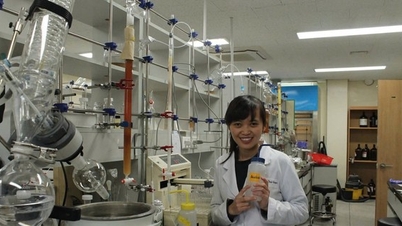


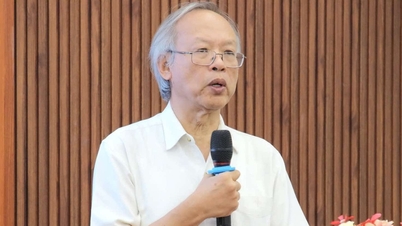


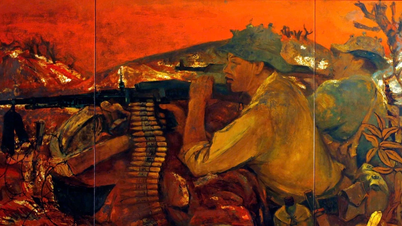


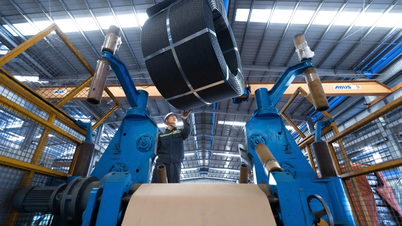













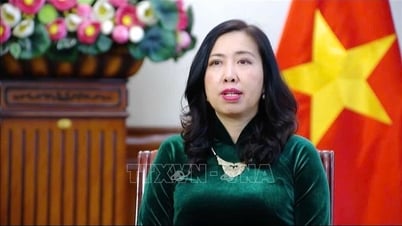



















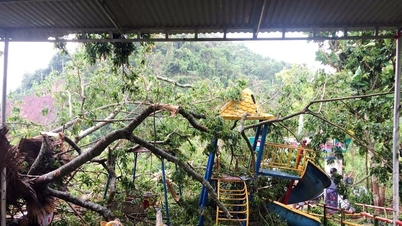




![[Video]. Building OCOP products based on local strengths](https://vphoto.vietnam.vn/thumb/402x226/vietnam/resource/IMAGE/2025/5/3/61677e8b3a364110b271e7b15ed91b3f)




Comment (0)